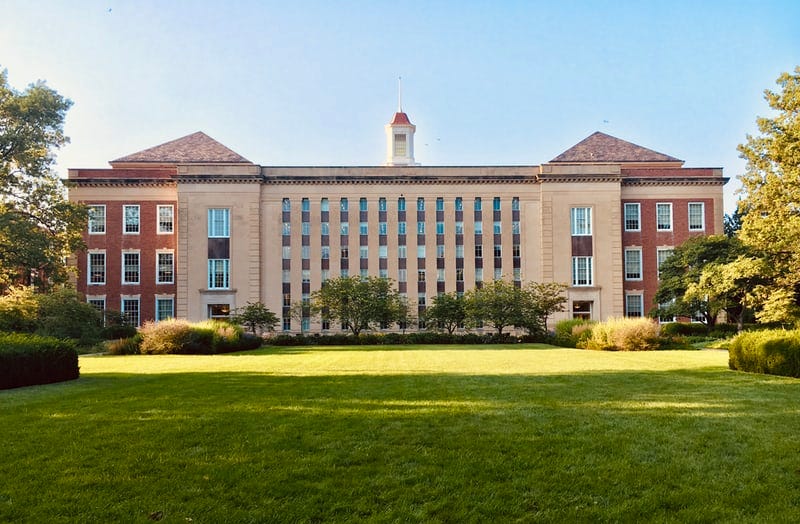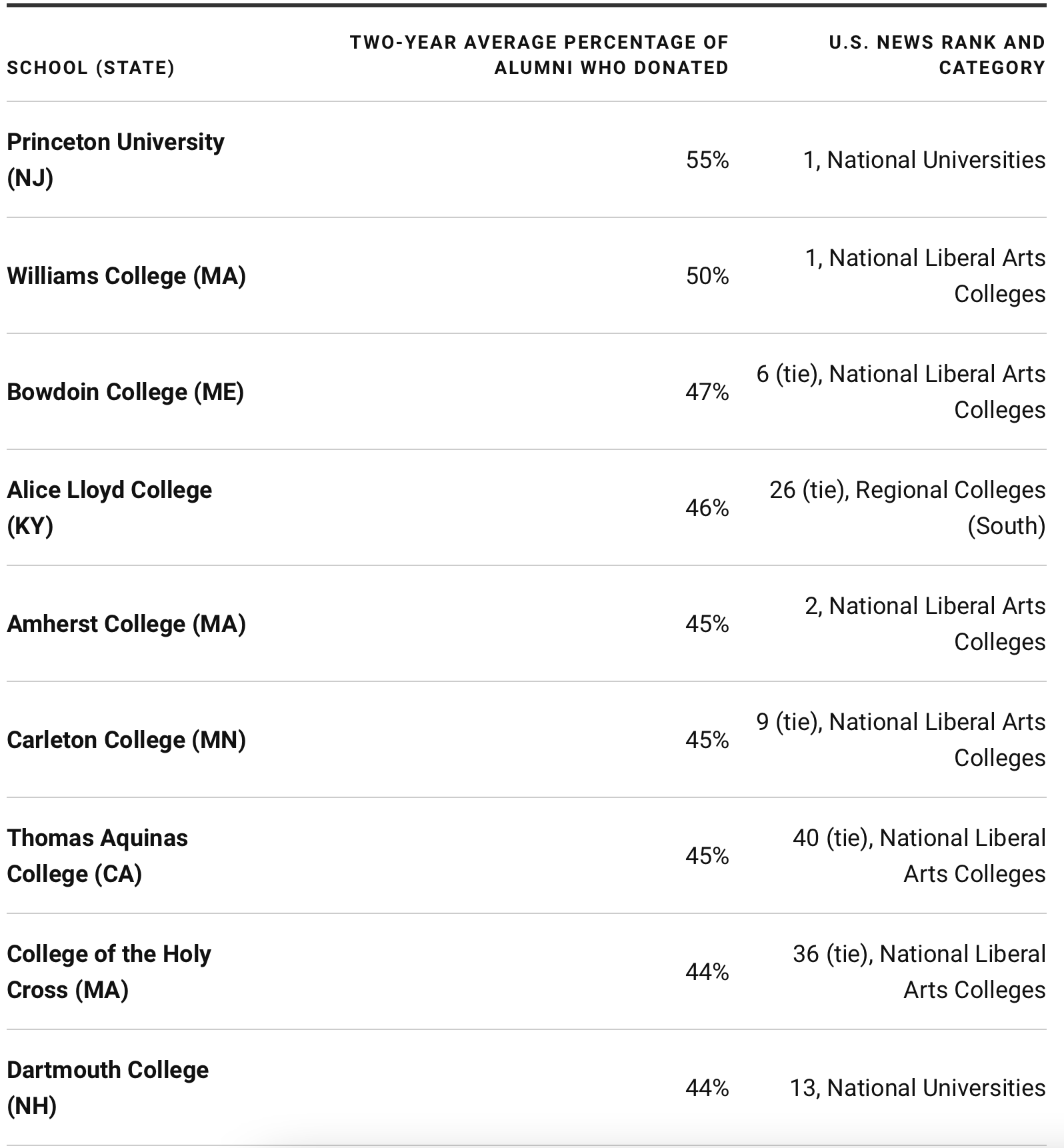Receiving a rejection letter from an institution’s admissions committee miles away at age 17 is hurtful enough. But there’s nothing more demoralizing than realizing your spot was taken by a wealthy student whose parents paid millions for a plaque on a campus building and also happened to be the main contributor to their child’s acceptance.
I believe anyone who has graduated HS is brilliant in their own ways and has untapped potential. It can be easily argued that HS is more challenging than anything. HS students refuse to believe this until they don’t.
Unfortunately all those painstaking nights, dreadful projects, and meaningless yet impressive test scores all disappear and become irrelevant once applying for college since a kid from a high-income earning household can skip the system with ease.
For 4 years in HS, mostly all students think about is their ultimate goal: getting into a prized institution where they will have to prepare to explain to their skeptical colleagues on May 1st, National College Decision Day how they intend on becoming successful in this world solely based on the recognition of their institution’s title.
Younger generations are obsessed with brand equity and recognition. It becomes dangerous once we associate it with someone and that’s all we want them for.
I would say 95% of my HS experience was solely about college. Thinking, dreaming, planning, proposing, networking, traveling, visiting, touring, you name it, it was my life.
Was it worth it?
Who knows but I’m certainly thankful and content about my decision today because I found out what I really needed to shine through and prove my worth all on my own. I accepted the odds would always be against me and for the top 1% instead so I tried my best and got lucky.
As a GenZer born in the midst of the internet bubble and during the prestigious times of college admissions, the allure of higher education, emphasis on tutoring, grading, side doors, Kaplan and Khan Academy, the strange love affair with the violin, and with the transition to the internet, school slowly morphed into other parts of students’ lives and didn’t just stay in school.
Isn’t it sad that the things we love the most can also provide us the most stress?
I genuinely love learning but the education system has made me endlessly confused, lost, and feel like an imposter 24/7. Since my generation was the first to grow up in this internet age of Web 2.0, we cannot compare it to the times of not being able to conveniently turn on our cameras for class or email our teacher about an assignment on a Thursday night.
Every generation has its pros and cons but what is for sure is that anything in excess and obsession is unhealthy even if it seems healthy like school. I cannot even imagine what the younger end of my generation is currently facing as tweens are warped in social media for 10,12 hours a day dealing with remote school, not knowing how to socialize, endless competition, and pressure from parents.
But what is most upsetting is the overemphasis on prestige, rankings, and elitism within college admissions that has only multiplied since my time which makes me wonder, will this system get worse before it gets better?

The Case of Admissions
Similarly to applying to a role at a company, there is only so much you can control. Yes the interview, resume, CV, networking referrals all count but at the end of the day, people are people and humans decide based on instinct, feeling, drive, mood, external factors, LEGACY, and unfortunately the temptation of money. Money can act as a drug and has been a key source in the college admissions process for countless universities since their founding. Hard-working students like myself have had to deal with this injustice.
I find one of the main lessons students don’t grasp early enough as they become attracted to the rankings on U.S. News and World Reports “Best College List” is that they fail to look at the larger picture.
By far one of the greatest lessons I’ve ever learned at this stage is what you put in is what you get out. Anywhere can be great but it’s what you make out of it that counts.
Going to a so-called ‘successful top-ranked school’ won’t make you successful per se. Just like following habits successful people follow which typically include a rigorous crack of dawn morning workout or endless hours of reading or alone time doesn’t work for everyone or at least, most. Forcing yourself to be attached to a school so your high school buds think of you more highly isn’t in your best interest especially when you know legacies play a dominant role in that particular school anyway.
On top of this, what helped me cope with this frightening experience of applying to colleges, even the notion of acceptance and rejection seems illogical, is that I let go of my emotions. Comparatively to investing, once you detach your emotions from investing, you become more strategic in your approach looking long-term, not tying every decision to a move in stock price and instead on the overall trend of the benchmarks. No tutoring agency guided me or helped me stay sane through this process since I knew their job was to reduce my rejections and focus on test scores that don’t reflect my true ability. I wanted to tackle this adulting process alone and knew not taking any rejection personally was my secret weapon to moving on and somehow enjoying the experience.
Troubled Entry
There was a lot of extra weigh put on my shoulders while applying to college and it mounted when I got to a breaking point. My father had passed in the midst of HS when I started touring and this was also a time when I had to deal with my own insecurities, the universal self-esteem that wrangles teens, and just the fact of going to HS was tough enough. Yet looking back, that distraction helped me realize how strong I was and that my hard work hasn’t gone to waste.
For the older folks reading this, the internet age doesn’t make anything easier. It’s harder than it seems.
But on top of it all in the back of all my colleagues minds, we knew legacy admissions would ruin our chances even more since none of us had the means to ask daddy for a million dollar check let alone ask Kumon for a 30 minute $90 tutoring session. We were either immigrants or children of them, myself included.
Although I clearly didn’t know who out of my class went through the backdoor system or worked with Rick Singer’s twin since no one would voluntarily disclose, I knew this legacy system of giving preferential treatment to a last name was evident and going on. Even my counselor recommended my parents try it for a couple schools but we knew it was deceitful and purposeless. In the end, I would feel the worst.
If you have time, which you clearly may not have in high school, I would highly suggest watching the documentary,”Varsity Blues” on Netflix to expose yourself to the unfair advantages in the system based on enticement of alumni donations, college endowments, and the obsession with money.
My counselor pointed out several distinct schools that I couldn’t get into without having a famous last name or check. She told me to never even bother applying to them as they only value alumni’s children and the legacy admissions process is highly engrained in their system.
It’s shocking that the top 10 schools admitted more top 1% students than those from the bottom 90%.
Isn’t education about affordability not exceptionalism?
No wonder every rejection felt like all my grinding, late-nights, headaches, you name it, I felt it, in high school was a total waste. This hidden process was behind the scenes on purpose and my faithful colleagues and I who worked our tails off and didn’t rely on the bank of mom and dad took every rejection personally when there were wealthier kids in our classes that got in because their parents contributed to the billion dollar endowment.
Unfortunately this was the case in my HS and it seems like everything worked out just fine for the alumni gifted kids since it technically isn’t illegal, just not always preferred or recommended for the student’s moral compass and parents’ long-term vision. They had an opportunity to take the easy route and went for it. Sadly money can buy you opportunities in the wrong way.

Family Tree
To be clear, there’s absolutely nothing wrong with having one’s child go to the same school as their whole family tree if they can afford it or choose to donate a lump sum to improve the campus’ infrastructure. But personally if my parents decided to do this on my behalf and not tell me until 3 decades later, it would be a serious problem and I would feel like a true failure since I want to work for what I deserve in a rightful way. I don’t want someone to manipulate a system for me so I feel worse off later. It’s just not worth it.
Parents feel inclined to go down the legacy route for their child possibly due to internal pressure from relatives or simply because they don’t believe in them or are worried for their future which isn’t wrong. Many parents have no idea how their kids are doing anyways since they never want to talk about school!
Since more and more schools are choosing to select the top 99% from a graduating class, there’s no room for anyone else. There aren’t so many freakishly remarkable students and they aren’t all bundled in the top 99% anyways since kids mature at different times. Being valedictorian doesn’t make you an immediate success. It can easily inflate your ego instead and believe everything is already set for you. Down the road, no one will be able to tell the top 80% versus top 99% of students from a HS class and I can almost guarantee you, the least likely students or late bloomers will push further and make the class of 2030 stand out the most.
Arguably, there’s nothing more fulfilling than getting what you rightfully deserve after unwavering commitment and dedication. Although I have never personally won the lottery since I can’t bear to play such a nonsense game, if I had to choose between the feeling of receiving a deposited lotto check based on luck or the feeling of getting a position I worked all on my own for, no question I would always and only choose the latter. I hope you all reconsider that too if you thought otherwise.
Taking the easy route and having parents do the work for an almost adult is dangerous. Sure they can pay one’s way into their top school but after that, there’s no hand holding. You must work on your reputation yourself and build it. Thankfully legacy admissions doesn’t work in the workplace.
Don’t even get me started on parents paying their way to hire test takers to take their standard admissions tests. At least colleagues are now offering them as an option or taking them away entirely. But to be honest, that was an easier choice to erase on their end since standardized admissions tests such as the ACT or SAT don’t bring colleges more revenue anyways. More applications do especially through legacy admissions. Even the name is too enticing for them to give up.
Slow Moving
On a dark cloudy miserable night in 1890 standardized testing was born. Since then it took a good 2 centuries for these tests to become fully optional. Yet till today, there’s still disagreement about them and that change hasn’t been amended in most institutions yet! Many schools still require them since they want to make it easier on their end to accept and reject. It is hard in itself to differentiate students only with a transcript, resume and optional essay. Tests give them another piece of information about the candidate.
Thankfully this week, Amherst, a selective USA top 20 school announced its admissions office will no longer play favorites when considering the applications of children of alumni. Since 11% of each class accounted for children of alumni, this will no longer be possible for the incoming class.
Thankfully Amherst is not the only school taking lead sacrificing profits for student fairness. Other elite colleges that don’t factor in applicants’ family trees include Caltech, MIT, and any school that starts with “University of California.” Just last week, Colorado passed a bill banning preferential treatment for applicants with alumni relatives at all public schools in the state.
At Johns Hopkins University, which started phasing out legacy preference in 2014 and completely erased it in 2019, the proportion of accepted students whose parents were alumni more than halved from 2013 to this year, while its share of first-generation students more than doubled. A great push towards diversity and inclusion but there should be a better way than just erasing legacy admissions.
And don’t forget. This doesn’t just happen in college. In terms of private HS or to get into any school starting as early as in Pre-K for those living in cities, you must apply to get in too! The applications and rejections never end! Thankfully kids ages 2–12 could care less and don’t take it personally. The parents are more offended and start questioning everything when their kid isn’t accepted into an elite Pre-K.

Stark Disparity
There’s a whole lot of change that needs to be made in the education system and erasing legacy admissions is only a small component. Sadly I doubt major sweeping changes will be done in my lifetime to testing and legacy admin since who isn’t attracted to money, status and praise? Should we blame colleges anyways or is this part of doing business? They need to keep their endowments running to fund student operations and keep the institutions afloat after all. Without donors and alumni, they are toast.
According to a 2019 study on college admissions, 43% of private, nonprofit universities and 14% of public ones consider legacy status in their admissions decisions.
There is pressure to change. Students this fall launched #LeaveYourLegacy campaigns at Harvard and Brown, asking alumni to boycott donations. Long story short, it hasn’t seemed to work.
Obviously if everything could be fair and admissions officers simply evaluated students based on the resources and information provided to the table not last name, donations or even test scores, I believe the success of graduates would go up, more contributions would be flowed back into the school, there would be greater diversity, inclusion, racial equity within classrooms, happiness and satisfaction rates would rise, and more donations would be made as a thank you not just from the top 1% who can donate $3m to title a bench and get their daughter/son in.
Since John Hopkins’ cancelation of legacy admissions, children from alumni dropped yet that shouldn’t be a concern. College should be about affordability and acceptance not privilege and keeping the same rich family in for generations.
Yet when it comes to any change within an institution’s structure, there are always critics and everything takes immense time. Legacy admissions goes beyond alma mater and admissions in itself. It is engrained in the finances of the school that cannot just be switched on and off.
Both Sides
Now that we’ve delved into the side affects and corrosive impacts of legacy admissions, let’s hear the critics of abolishing legacy admissions. In order to make an informed opinion, we must hear both sides.
Here’s what legacy admission supporters, a.k.a the top 10%+ argue about keeping this practice alive.
They state, “abolishing the legacy admissions takes spots away from those who are still academically more deserving.” Essentially from this poor argument it sounds like the supporters believe their children are more gifted than the rest of applicants.
No doubt you can possibly make this argument for your own child if you truly think they are somehow more brilliant than the majority but according to countless studies, students whose parents are top-earners, score higher on college entrance exams and have more opportunities at their disposal which in turn makes them better at academics. If all students had the same resources as the top 10%, there would be no problem.
Does being wealthier make you more academically more deserving? I don’t think so.
In addition, proponents of legacy admin say “they boost the innovation, programs, opportunities and school as a whole with more donations poured into the system.” To them it seems like the best financial choice encouraging more philanthropists, sponsored events by the school, bragging rights, and continued engagement to get another ranking higher, their endowment size.
In 2018 even an economist hired by the plaintiffs said that Harvard accepted legacy applicants at a rate 5x higher than it did non-legacy applicants. Over one-third of Harvard’s Class of 2022’s student had alumni parents! This is absurd and beyond disappointing.
Proponents of legacy admissions keep their reasoning basic: It’s smart financially, encouraging alumni donations and continued engagement with the school. Finances and themselves are all that matter it seems.
Elite schools say legacy admissions encourage alumni to donate more, but a study that tracked giving at 100 schools from 1998 to 2008 found no evidence of that.

The Costly Decision
In 2019 alone, according to research from the Council for Advancement and Support of Education, U.S. colleges totaled more than $11 billion in alumni giving! This is greater than the GDP of 3rd world countries and emerging markets.
2 1/2 years ago on National College Decision Day I distinctly remember how shocked I was to see how many of the same schools my friends’ parents attended. They worked hard for nothing if money was the driving force to get them in. I was disappointed since I thought they knew better but once again, who really knows if they got in or not. They could’ve applied to the same school without any donation but even then, their name would’ve helped them get in. They will never reveal the truth if it was all them or their parent’s bank account but nevertheless it still leaves a sour taste in my mouth.
On average, the alumni giving rate was 8% according to data surveyed from 1,451 colleges reported to no other than the U.S. News and World Report. Yet at the top 10 colleges in the U.S., they saw two-year average alumni giving rates of 44% and higher.
That lead me to ponder the reasons for donating so much money in the first place.
Here are the reasons alumni donate:
-Support alma mater forever + always and alumni genuinely enjoyed their experience as well and want to make sure future students and their precious children enjoy it more
-For legacy admin purposes and to get their child in
-Want the prestige, awards and to be a part of the school in order to be invited to events, guest speak, run the committee and have their name on a building
-Great networking opportunity if one is having trouble finding friends at work-just revisit your friends from college
-Could be involved with the endowment-possibly as a financial manager themselves or work for the school
-Have too much wealth and prefer to give it to a billion dollar school instead of a non-profit helping reduce poverty
-LARGE INCENTIVE: Help reduce taxes through charitable deductions
Since I’m only a student, I’m not one to say how much to give or donate. It is based on your college experience and personal financial circumstances. In the future though, I know I want to give back to an organization, school, non-profit, and committee that has done a lot for me and works for the greater good. I believe the school I attend today strives to do the most and work for everyone. That’s why it was my top choice in the first place. NYU is one of the most diverse, innovative, creative, and incredible schools in the world and I couldn’t have asked for a better more fulfilling experience. The people here are beyond special.
If you’re looking to donate to an institution and deciding between yours or one across the country, I would suggest finding out that school’s legacy admissions’ relationship, how you feel about it, and if it strives to only get the top 1% to become billionaires or instead focus on assisting the bottom 90% to become millionaires.
I would suggest giving 2–5% of your income from the start. If possible, see where it’s distributed and whether it really helps spread affordability and accessibility not just prestige.
Schools need donations and gifts to survive which most notably come from alumni. To provide scholarships, support students, staff, pay fair wages, and keep the school afloat, it is no easy task to manage a school’s finances since their budgets are extremely volatile as economic uncertainties plague student’s decisions all the time. School is the most expensive purchase parents will make for their child. It’s no easy decision when they are tight within their own budget.
With the rise of entrepreneurialism, side-hustles, and the Great Resignation, this has lead HS seniors to reconsider the traditional education system. Plus, investing in the stock market is risky in itself and something endowments must consider. Lastly, donations are 100% optional. If the alumni aren’t earning dough, the institution will loose out.
Colleges operate as companies and in order to plan for the future, they need to have stable and consistency cash flow and reserves on the side in case a pandemic hits or something crazy.
If interested, here is the overall ranking which is ranked by donation size:

The average two-year alumni giving rate was 47%, well above the national average of 8% according to U.S. News data.
According to one survey, U.S. higher-education institutions pulled in nearly $50 billion in donations in the year to June 2020!
Unsurprisingly this number is only rising since these alumni, wealthy donors own businesses, and most likely don’t rely on W2 income or Amazon to stay afloat. They were the least ravaged by the pandemic.
The middle and upper class grew their wealth by 61% in 2020. The upper class earned, relaxed more, and invested more than they have in prosperous times. Clearly the stock market and economy aren’t related. Maybe successful alumni can come and teach current students about their own path.
Employing them as assistant teachers or having them participate in lectures once in a while could be incredibly helpful as the student loan debt amount is looming over $1.73 trillion in the U.S. and unfortunately more students cannot find employment even after spending a quarter of a million dollars on a degree.
Although a degree is an economic premium no one can replace, it still isn’t guaranteed to get what you want. Even in this labor shortage, it doesn’t always pay for itself if you aren’t willing to work hard in between, especially if you are a student who paid their way to get in in the first place.
What you put in is what you get out after all!
It’s good to see reform being made in this dated unfair system of legacy admin but I’m particularly concerned how wealthy donors will react since schools with legacy admissions tend to attract higher alumni donations than others since they select from wealthy families.
Will the top 1% continue to donate to their alma mater or instead refocus on giving it to schools in need not just theirs?
I predict schools that drop the legacy admissions process will see their ranking increase, if they are focused on that which sadly is the case. It will take time but will come. Their endowments on the other hand can drop as it is highly dependent on the alumni’s choice to donate or not.
All in all, I hope you realize that being wealthy does not make your life so much easier in the end. Sure, it CAN give you a leg up if you want to attend a legacy admired favored school but after that, once the bags are dropped off and mom and dad drive away, it’s all on you kid to prove yourself. I believe students who got into a school solely due to the privilege of their last name will regret it forever.
You are capable of more than you think and money shouldn’t be a way to get ahead of deserving hard working students. In the end, it may not serve you as much as you think and will most likely make you feel worse off than when you started.
Spend and choose wisely.
Never be attached to one thing either in life. The grass isn’t always greener on the other side.
Try it out yourself first.
I believe in you, not your last name.

